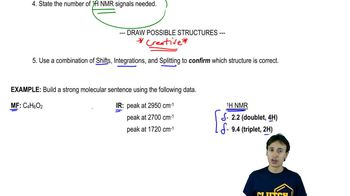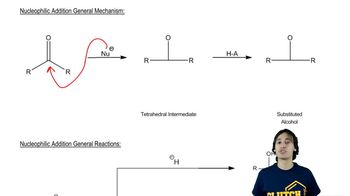Show how each of the following compounds can be synthesized from the given starting materials:
c.

 Verified step by step guidance
Verified step by step guidance Verified video answer for a similar problem:
Verified video answer for a similar problem:



 3:19m
3:19mMaster Sodium Alkynide Alkylation with a bite sized video explanation from Johnny
Start learning